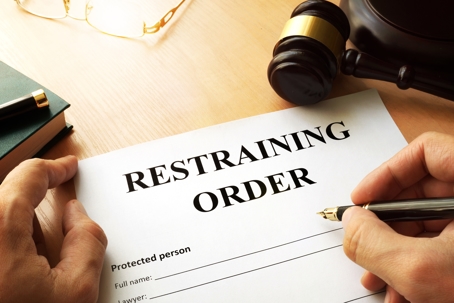A restraining order, also known as a protective order, is a legal injunction issued by a court to protect individuals from harassment, abuse, or threats. In Massachusetts, restraining orders are commonly used in cases involving domestic violence, harassment, and stalking. If you are served with a restraining order, it is crucial to understand your rights and obligations to avoid further legal complications. At DeGiacomo & Mikhlin, P.C., we provide guidance on how to navigate and respond to a restraining order. Here’s what you need to know about handling a restraining order in Massachusetts.
Types of Restraining Orders
- 209A Abuse Prevention Order: Also known as a domestic violence restraining order, this type is typically used in cases involving family or household members. It can order the defendant to refrain from abuse, vacate a shared residence, and avoid contact with the petitioner.
- 258E Harassment Prevention Order: This order applies to cases of harassment or stalking where there is no familial or domestic relationship between the parties. It can be issued for protection from physical harm, harassment, or threats.
Steps to Take If Served with a Restraining Order
Read the Order Carefully
Upon being served with a restraining order, carefully read all the terms and conditions. The order will specify prohibited actions, such as no contact with the petitioner, staying away from certain locations, and not possessing firearms. It will also provide the date and time for a court hearing.
Comply with the Order
Compliance with the restraining order is mandatory. Violating any of its terms can result in criminal charges, including arrest and potential imprisonment. Even if you believe the order is unjust, it is crucial to follow its directives until the matter is resolved in court.
Gather Evidence and Witnesses
If you wish to contest the restraining order, gather evidence and identify witnesses who can support your case. This may include text messages, emails, social media posts, or any other relevant documentation. Witnesses who can testify to your character or the circumstances may also be helpful.
Attend the Court Hearing
The court hearing is an opportunity to present your side of the story. It is essential to attend the hearing and arrive on time. Failing to appear may result in the order being extended without your input. During the hearing, both parties can present evidence and witnesses, and the judge will decide whether to extend, modify, or terminate the restraining order.
Consult an Attorney
Navigating a restraining order case can be complex and emotionally charged. Consulting an experienced attorney is highly recommended. An attorney can help you understand your rights, prepare your defense, and represent you in court. They can also assist in negotiating any modifications to the order, if necessary.
Respect the Outcome
After the hearing, the judge will issue a decision. If the restraining order is upheld or extended, continue to comply with its terms. If it is dismissed, you are no longer bound by its conditions. However, respecting the court's decision and avoiding any actions that could lead to further legal issues is crucial.
Potential Consequences of a Restraining Order
A restraining order can have significant consequences beyond the immediate legal restrictions, including:
- Impact on Employment: A restraining order may appear in background checks, potentially affecting employment opportunities.
- Loss of Firearms: Individuals subject to a restraining order may be required to surrender any firearms they possess.
- Custody and Visitation: In cases involving family members, a restraining order can impact child custody and visitation rights.
Conclusion
Handling a restraining order in Massachusetts requires careful attention to legal procedures and compliance with court directives. At DeGiacomo & Mikhlin, P.C., our experienced attorneys are here to provide the support and representation you need. If you have been served with a restraining order, contact us today for a consultation. We will help you understand your options and work toward a resolution that protects your rights and interests.

